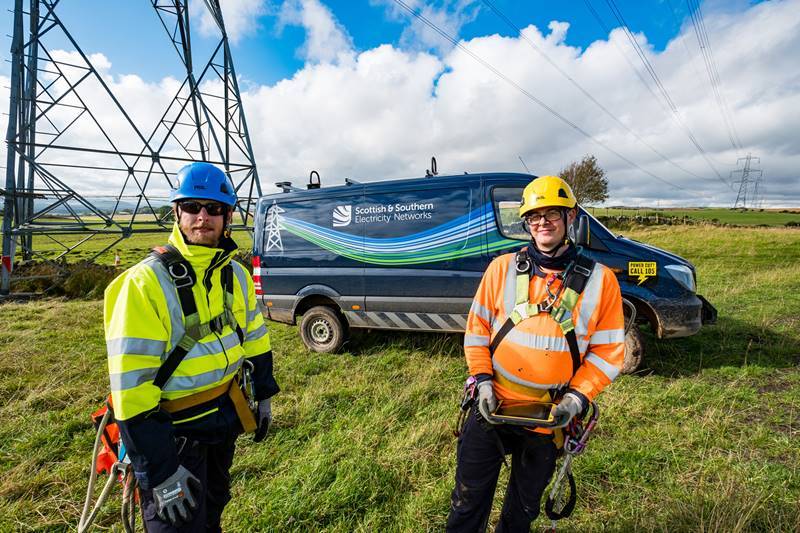The first wind generator contract has been awarded as part of Scottish and Southern Electricity Networks’ (SSEN) Constraint Management Zone (CMZ) flexibility scheme.
The DNO has announced four successful CMZ contracts, with three going to hydro sites and the final to Falck Renewables Wind UK, which owns and operates Ben Aketil Wind Farm. Collectively these contracts have a capacity of 5.9MW of flexibility on the Isle of Skye, bringing SSEN’s total to 17.7MW of available services.
SSEN is using CMZ contracts as an alternative to traditional backup generation such as diesel generators to improve security of supply during times when the main electricity distribution network is temporarily disconnected.
Renewables and storage are now being increasingly used by SSEN in the event of power cuts or network maintenance, helping SSEN expand its toolbox in a way that enables a net zero future. This will be the first time the potential for flexible wind energy to support energy system security is tested as part of the CMZ scheme, however.
Richard Dibley, managing director of Falck Renewables Wind UK, said they were delighted to have signed the contract, which will help “ensure local people have a constant supply of clean, renewable energy when other supplies fail”.
The successful CMZ contracts follow those awarded on the Isle of Islay in April, with more expected to be announced soon as SSEN continues to expand the scheme.
Alex Howison, flexible solutions manager for SSEN, said the contracts allow renewable and low-carbon energy sources to play a larger role in the flexibility of the network.
“We are pleased to be working with local energy suppliers to develop solutions to balance the grid and tackle local network issues, in a way that is both cost-effective and low-carbon.
“CMZ contracts are a core part of SSEN’s commitment to running a network that puts flexibility first. Our 2019 CMZ contracts on Islay were the UK’s first economically viable CMZ contracts with renewable energy and helped avoid approximately 2,450 tonnes of CO2 emissions. Today’s contracts build on this momentum of providing network support and flexibility through renewable and low-carbon options.”






